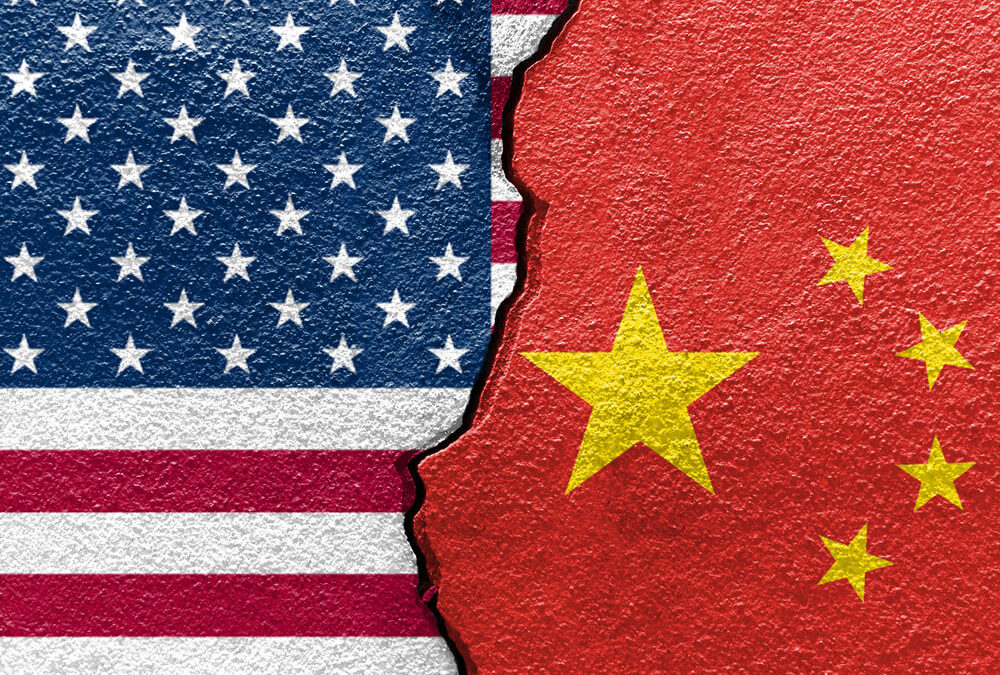President Donald Trump is initiating the process of leaving the Universal Post Union, which sets flat rates for international postage.
That’s according to two administration officials who spoke on the condition of anonymity because they weren’t authorized to speak on the record.
Trump argues that the global shipping treaty benefits China and other countries at the expense of U.S. businesses — making it cheaper to ship packages from Beijing to New York than from San Francisco to the East coast, which particularly benefits Chinese, manufacturers. The officials say the treaty is used by shippers of the narcotic fentanyl to the U.S. from China.
The U.S. is willing to renegotiate the treaty over the next year but will leave the union if no agreement can be reached, the officials said.
Trump Asks Cabinet to Cut Next Year’s Budgets by 5%
Dubbing it the “nickel plan,” President Donald Trump announced Wednesday that he’s asking every Cabinet secretary to cut their next-year’s budgets by 5 percent.
“Get rid of the fat. Get rid of the waste,” Trump told members of his Cabinet during a meeting at the White House. “And I’m sure you can do it.”
Trump said he couldn’t ask for the spending cuts earlier because he was working with Congress to increase funding for the U.S. military.
Trump’s budget request is due early next year. It’s for the fiscal year that starts Oct. 1, 2019. He said he wants to keep defense spending at $700 billion.
Trump said he’s heard of a money-saving strategy called the “penny plan” to reduce federal spending by 1 percent.
“Rather than go by the penny plan, we’ll go by the nickel plan,” he said
Some Cabinet secretaries can probably cut more than 5 percent, he said.
“I believe we can actually do it easily,” he said.
US to Enter Trade Talks With Japan, European Union, Britain
The Trump administration notified Congress on Tuesday that it plans to pursue trade agreements with the European Union, Japan and Britain.
The announcement comes two weeks after the administration reached a deal with Canada and Mexico to rewrite the North American Free Trade Agreement.
Late last month, the United States and Japan announced that they would open trade negotiations. And in July, President Donald Trump reached a somewhat vague agreement to begin talks to reduce trade barriers with the EU. Trump has long said he wants a pact with Britain, which is in the process of negotiating a messy exit from the EU.
Under American trade law, the Office of the U.S. Trade Representative must tell lawmakers what it hopes to achieve at least 30 days before talks formally begin.
Philip Levy, senior fellow at the Chicago Council on Global Affairs, suggested that each of the three negotiations poses problems.
French President Emmanuel Macron has said he won’t support EU trade talks with any country that isn’t part of the Paris agreement on climate change; Trump withdrew the U.S. from that agreement last year.
Talks with Britain can’t go anywhere as long as it is still part of the EU. And Japan only reluctantly agreed to talks with the U.S. as a way to stave off tariffs that Trump has threatened to impose on imported autos.
US Housing Starts Sank 5.3% in September
U.S. home construction fell 5.3 percent in September, a sign that rising mortgage rates may be weighing on the market.
The Commerce Department said Wednesday that housing starts slipped last month to a seasonally adjusted annual rate of 1.2 million, down from 1.27 million in August. So far this year, starts have increased 6.4 percent. But the pace of homebuilding has downshifted since May.
Homebuyers are facing new cost pressures that could be dampening demand.
Mortgage buyer Freddie Mac says that the average 30-year fixed-rate mortgage jumped to 4.9 percent last week, the highest level since 2011. The combination of higher borrowing costs and rising home values has made home ownership less affordable.
Builders appear to be adapting to the affordability challenges. Starts for multi-family buildings such as apartments have increased at a faster clip than single-family houses year to date.
Still, much of September’s decline came from a decline in ground breakings for multi-family buildings.
Housing starts fell last month in the South and Midwest, but they increased in the Northeast and West. The construction data can be volatile, so the regional levels of homebuilding can change sharply on a monthly basis.
Permits, an indicator of future activity, fell 0.6 percent to an annual rate of 1.24 million.
Iran Calls Latest US Sanctions an ‘Insult’ to World Order
Iran says the latest round of U.S. sanctions is an “insult” to the international order that stems from “blind hostility.”
On Tuesday the U.S. imposed sanctions on businesses allegedly linked to the Basij, a volunteer wing of the paramilitary Revolutionary Guard. The businesses include several banks as well as mining, industrial and trade companies.
The semi-official ISNA news agency on Wednesday quoted Foreign Ministry spokesman Bahram Ghasemi as calling the new sanctions “cruel and unfair.”
The U.S. has steadily restored sanctions on Iran following President Donald Trump’s withdrawal from the 2015 nuclear accord in May. Next month the U.S. plans to impose sanctions on Iran’s oil and gas industry.
Iran is already in the grip of an economic crisis, and has seen sporadic protests in recent months.
YouTube Goes Down for More Than an Hour
YouTube’s video streaming service went out for more than an hour on Tuesday, apparently affecting locations around the world.
YouTube acknowledged the outage in a tweet at 9:41 p.m. EDT, noting that it affected YouTube, YouTube Music and YouTube TV. The company said it was working on the issue and apologized for the inconvenience.
Reporters for the AP found that YouTube’s main service was working again around 10:50 p.m. EDT. Ten minutes later, YouTube tweeted again to note that service was restored, but offered no details.
In reply to a query from the AP, an unsigned message from Google’s press team stated, “We don’t have anything to add beyond the tweet.”
United Earnings Top $836M
United Continental Holdings Inc. (UAL) on Tuesday reported third-quarter net income of $836 million.
On a per-share basis, the Chicago-based company said it had net income of $3.06.
The results did not meet Wall Street expectations. The average estimate of eight analysts surveyed by Zacks Investment Research was for earnings of $3.09 per share.
The airline posted revenue of $11 billion in the period, exceeding Street forecasts. Five analysts surveyed by Zacks expected $10.96 billion.
United expects full-year earnings in the range of $8 to $8.75 per share.
United shares have climbed 24 percent since the beginning of the year. In the final minutes of trading on Tuesday, shares hit $83.52, a rise of 25 percent in the last 12 months.
Abbott Earnings Top $560M
Abbott Laboratories (ABT) on Wednesday reported third-quarter net income of $563 million.
On a per-share basis, the Abbott Park, Illinois-based company said it had profit of 32 cents. Earnings, adjusted for one-time gains and costs, were 75 cents per share.
The results surpassed Wall Street expectations. The average estimate of 10 analysts surveyed by Zacks Investment Research was for earnings of 74 cents per share.
The maker of infant formula, medical devices and drugs posted revenue of $7.66 billion in the period, falling short of Street forecasts. Seven analysts surveyed by Zacks expected $7.67 billion.
For the current quarter ending in December, Abbott expects its per-share earnings to range from 80 cents to 82 cents.
The company expects full-year earnings in the range of $2.87 to $2.89 per share.
Abbott shares have climbed 24 percent since the beginning of the year, while the Standard & Poor’s 500 index has risen 5 percent. The stock has risen 30 percent in the last 12 months.
US Regulators Lift Strict Oversight of Prudential
A group of federal regulators has lifted the strict government oversight imposed on big insurer Prudential Financial Inc. It was the last financial company still carrying the label that subjected it to special restrictions stemming from the 2008 financial crisis.
The decision by the Financial Stability Oversight Council closed the books on its actions tagging selected big financial companies as potential threats. It was the latest example in the Trump administration’s push to unwind Obama-era regulatory requirements aimed at averting another financial meltdown.
The council tagged Prudential in 2013 as a “systemically important” institution, one so big and interconnected that it would threaten the financial system’s stability if it collapsed. The action put Prudential under special supervision by the Federal Reserve.
© The Associated Press. All rights reserved.




